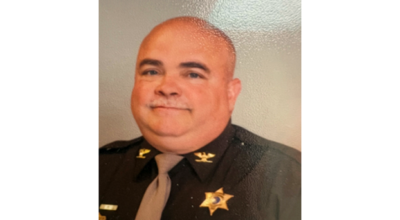County converts to consent agenda
Published 5:50 pm Monday, April 1, 2013
CASSOPOLIS — A new process that allows the county’s business to be conducted more
economically while providing for more public participation has been
implemented by the Cass County Board of Commissioners.
It’s called the “Committee of the Whole.” It’s a public body that includes all
seven county commissioners, and it allows each of them to be fully involved in all
issues that the regular board of commissioners considers.
The change was proposed several months ago by former commissioner Dale
Lowe after having studied similar mechanisms in other counties.
Lowe said he believed the local board was not as efficient as it could be.
At a December board of commissioners workshop, it was suggested the board
abandon its regular standing committees and try the committee of the whole.
“None of the (standing) committees represented a majority of the board of
commissioners. So after they completed their work (on issues) and recommended
decisions, they were questioned by people not on the committees,” Cass County
Administrator Louis Csokasy later explained.
“Consequently, many recommendations from the (standing) committees were not
approved (by the board),” he said.
The committee of the whole meets immediately before each board of
commissioners meeting on the first and third Thursday evenings of each month.
Commissioners study and discuss issues and only make recommendations on the next logical step for an item. And those can range from recommending further study of an issue, seeking greater input from citizens or departmental personnel, referrals to other county departments or placement of items directly on the board of commissioners’
agenda for action.
The informal nature of the committee structure allows for questions, research,
discovery and discussion.
“This (process) allows all board members to meet and discuss an item at one time.
It allows the county business to move along much quicker and it allows input from
interested citizens,” Csokasy said.
To foster that, routine items are bundled into a “consent agenda,” which is offered
by one commissioner in the regular board of commissioners meeting for approval.
The committee of the whole has a set of distinct rules, which the board can vote to
alter at any time. Board Vice Chairwoman Bernie Williamson is the committee chair,
which gives Dwight (“Skip”) Dyes, the board chairman, a chance to participate in research and discussion on issues.
Unlike the board of commissioners, the committee of the whole solicits input
from the audience. Citizens and committee members who want to speak can just raise their hands.
The length of time for presentations or general input is determined by
Williamson. Plus, all motions and resolutions for the board must go through the
committee first unless Dyes defines an item as an emergency. In that case, it is addressed in a special meeting of the board.
According to the rules, a majority of commissioners constitutes a committee
quorum and all questions arising from discussion are resolved by majority vote.






